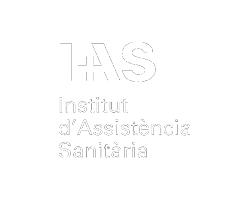General information about ADHD
In these sections the user will be able to access information about ADHD, its repercussions, the available medications and the adverse effects they produce. We hope that this information will be useful in deciding on ADHD treatment preferences.
Preventing drug or substance use disorder
People with ADHD have a higher risk of developing a substance or drug use disorder than those without ADHD. Overall, children with ADHD are 2 to 3 times more likely to develop drug use disorder in adolescence or adulthood.
What is drug use disorder?
Substance or drug use disorder is a psychiatric disorder that occurs when drug use causes significant problems in a person’s life. These problems can be health related, or social problems such as failure to meet responsibilities at work, home or school. Substance use disorder can be mild, moderate, or severe. Severe substance use disorder is commonly known as addiction. This refers to regular drug use which leads to needing to take increasingly larger doses of the drug. When the person does not consume the drug they feel unwell and are unable to stop taking it despite being aware of its negative effects.
How is ADHD related to drug use disorder?
Numerous studies find that children with ADHD are more likely to develop a substance use disorder. In general, children with ADHD are 2 to 3 times more likely to develop a drug use disorder in adolescence or adulthood than children without ADHD. However, this varies depending on the type of drug taken.
Tobacco: approximately 30-40% of adults smoke or have smoked. However, the probability of smoking is almost three times higher among those with ADHD.
Alcohol: just under 10% of adults have or have had an alcohol use disorder at some time in their lives. However, the risk of developing an alcohol use disorder is twice as high among those with ADHD.
Drugs other than tobacco and alcohol: around 6% of adults in the United States have or have had a cannabis or marijuana use disorder. However, the risk is 50% higher for people with ADHD. Regarding cocaine, just over 2% of adults have, or have had, cocaine use disorder. However, the risk is twice as high among those with ADHD.
Do you need to make a clinical decision?
EVIMATIC® is the first digital health tool that generates decentralized, automated, personalized, participatory and explanatory treatment recommendations that are presented in the format of clinical practice guidelines.
Do you need to make a clinical decision?
EVIMATIC® is the first digital health tool that generates decentralized, automated, personalized, participatory and explanatory treatment recommendations that are presented in the format of clinical practice guidelines.













